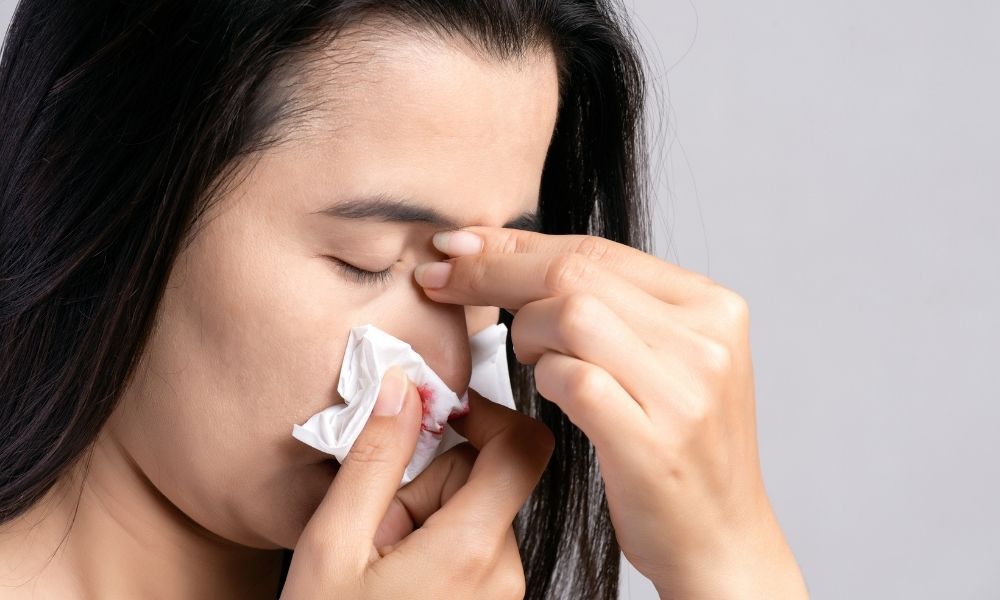Your writer, a sufferer of some light environmental allergies, will never forget sitting in history class one cold morning after weeks of dry winter weather and dust inhalation had taken their toll. All it took was one simple sneeze to send out a spray of bright red blood—not to mention a few quickly forgiven expletives—and prompt a shambling run for the exit.
Nosebleeds can be inconvenient, embarrassing, or even panic-inducing, and they quite often seem to attend allergic reactions that affect the respiratory system. But can allergies cause nose bleeds? Absolutely. Let’s learn more about why and how nose bleeds from allergies occur.
Dry Nose
The root cause of most allergy-related nosebleeds is a dry nose. Inside the nostrils are the nasal membranes, which do the important work of humidifying and warming air as we inhale and exhale. In order to do so, the nasal membranes enjoy an abundant supply of blood that circulates and heats the nasal tissue. There are many small blood vessels lining these membranes. But allergic reactions to pollen, dust, and pet dander can dry out these membranes, leaving the blood vessels susceptible to bursting. This means that it won’t take much to rupture them—a sneeze, cough, or even simply labored breathing could be enough to prompt a frightening nose bleed from allergies.
Irritation
When you’re congested, you blow and wipe your nose a lot. All this friction, whether it’s from the air or the tissue paper, can be highly abrasive to your sensitive nasal membranes. These abrasions can damage the blood vessels in the nasal membranes, and once they start to bleed, it can take quite some time for the bleeding to stop. As gross as it may be, we must also confront that younger patients—and even some not-so-young patients—will try to clear accumulated dry mucus out of the nostrils by picking it out. Consider that if mere airflow can abrade the nasal lining, then fingernails can most certainly lacerate it, causing even more bleeding. As tempting as it may be, any doctor or parent would contraindicate this means of relief when it comes to nasal congestion with allergies.
Treating Allergic Nosebleeds
Having established that nose bleeds can be caused from allergies, the next step is to prevent or treat them. Saline-based nasal sprays are useful in keeping the nostrils from becoming overly dry but be careful not to over-rely on these products—your body’s mucous membranes may grow accustomed to the supplemental lubrication and not produce enough natural mucus themselves, leaving your nostrils drier than they were before. A humidifier can help prevent inhaling dry air. But while these treat the symptoms of allergy-related nosebleeds, you should attempt to treat the cause. Allergy & ENT Associates, an allergy specialist in the Houston area, can address the root cause of the allergies that cause nosebleeds, whether they’re tedious or traumatic.


